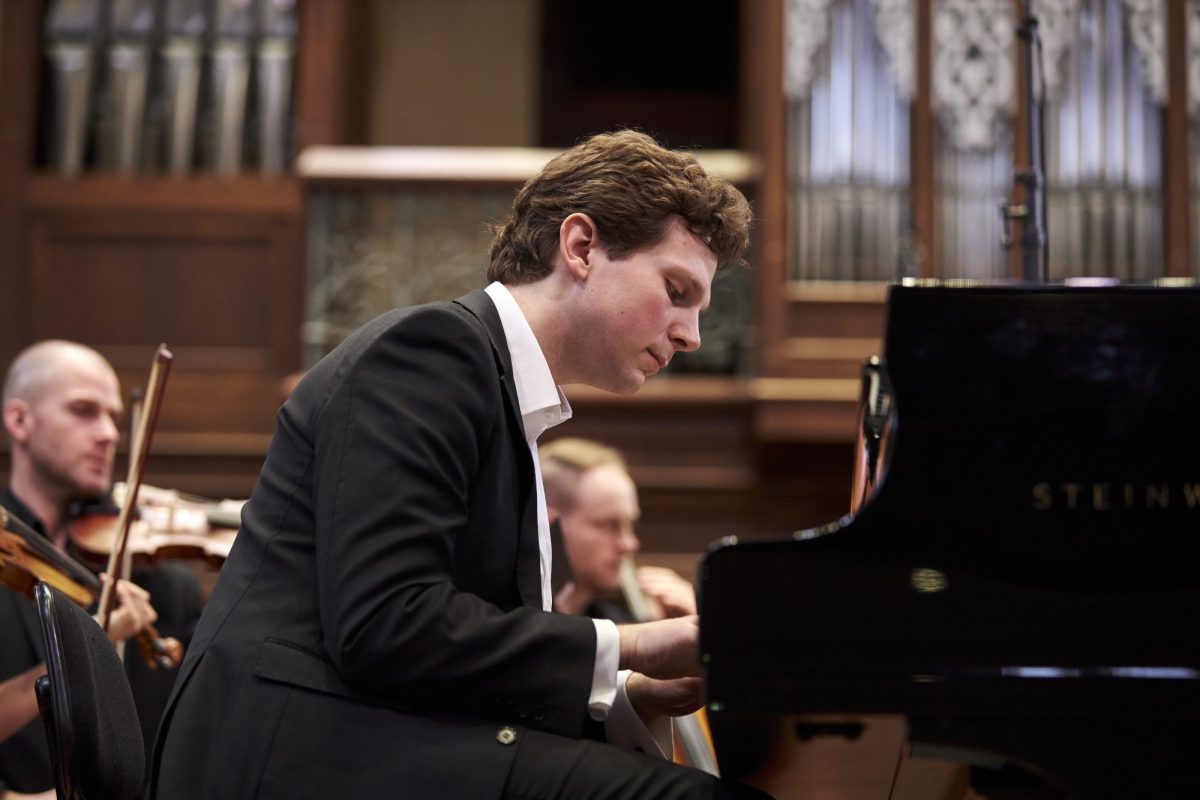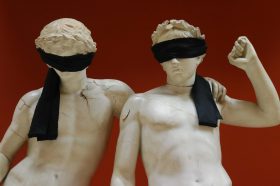The recent controversy surrounding the Melbourne Symphony Orchestra (MSO) has once again highlighted the significant challenges faced by cultural leadership in Australian arts institutions. This latest incident, involving acclaimed pianist Jayson Gillham, serves as a stark reminder of the sector’s ongoing struggle to navigate complex social and political issues.
The MSO incident: a recap
On Sunday 11 August, Gillham presented a solo recital at Melbourne Town Hall, featuring the world premiere of Witness by composer Connor D’Netto. In his introduction to the piece, Gillham referenced the killing of ‘more than 100 Palestinian journalists’ by Israeli forces. This context was provided with the composer’s express permission and followed Gillham’s practice of introducing all pieces in the concert, including a work by [György] Ligeti that touched on the composer’s family background and experience of the Holocaust.
The MSO’s reaction was both swift and severe. A senior manager walked out during the performance of Witness, and the orchestra soon issued a statement announcing Gillham’s removal from an upcoming performance of Brahms and Beethoven. The MSO claimed Gillham’s remarks were made ‘without seeking the MSO’s approval or sanction’ and constituted an ‘intrusion of personal political views’.
The fallout was immediate and intense. Critics lambasted the MSO’s decision, while Gillham received widespread support on social media. The Media, Entertainment & Arts Alliance (MEAA) issued a statement criticising the sanctioning of Gillham, noting that MSO staff were not consulted on the decision.
As pressure mounted, the MSO attempted to backpedal, admitting to an ‘error’ in standing down Gillham. However, it stopped short of a full apology, merely expressing regret to ticket holders and reiterating its belief that the ‘concert platform is not an appropriate stage for political comment’.
The situation reached its zenith on Friday (16 August) with a public statement of no confidence in CEO Sophie Galaise and COO Guy Ross from the MSO musicians. This motion, while triggered by the Gillham incident, was described as the culmination of ‘years of unresolved concerns, ongoing mismanagement, and a consistent decline in workplace culture’. In response, the MSO Board committed to an independent external review of its policies and procedures.
Echoes of the Sydney Theatre Company debacle
This incident bears striking similarities to the Sydney Theatre Company (STC) controversy in November 2023, when three actors wore keffiyehs during a curtain call for The Seagull. The STC’s mishandling of that situation led to board resignations, financial losses and potential job cuts. Former Qantas CEO Alan Joyce resigned before commencing his term, citing that he would not have sufficient time to devote to the ‘critical state of the STC and the immediate need for dramatic action’.
Both cases highlight a disturbing pattern: major Australian cultural organisations making knee-jerk decisions in response to artists expressing political views, followed by clumsy attempts at damage control that only exacerbate the situation.
The broader context: a crisis in cultural leadership
These incidents are not isolated. They are symptoms of a deeper malaise in Australian cultural leadership, a topic I’ve previously explored in relation to organisations like the Sydney Symphony Orchestra and the Tasmanian Symphony Orchestra.
Wesley Enoch’s groundbreaking 2014 article decried the lack of robust cultural leadership in contemporary Australian arts companies, contrasting it with an earlier generation of bold organisations led by cultural luminaries who engaged fearlessly with powerful issues. Speaking on my podcast earlier this year, Enoch lamented that little has changed, expressing concern that the cultural sector has lost ground in asserting its voice and values in an increasingly polarised and corporatised public sphere.
The shift towards corporate governance in arts organisations
The root of this problem can be traced back to the 1999 Nugent Report, which recommended that major performing arts companies adopt a more corporate model. This shift forced organisations to diversify their revenue streams, leading to an increased reliance on philanthropy and corporate sponsorship – areas in which many cultural leaders lacked expertise.
This change has been reflected in the composition of arts boards, with an influx of corporate figures and representatives from influential foundations. While this has brought valuable business acumen, it has also created an uneasy dynamic of stakeholder management, often compromising cultural leadership decisions.
The stakeholder dilemma
Arts organisations now find themselves caught between competing loyalties: to their donors or to their audiences? This dilemma becomes particularly acute when addressing divisive social issues.
The reactions of the MSO and STC suggest a tendency to favour the views of funding stakeholders over those of artists, audiences and the broader community. This approach feeds into an unpleasant narrative that these institutions prioritise appeasing donors sympathetic to certain political positions, rather than engaging in meaningful dialogue with all stakeholders.
A missed opportunity for leadership
The failure of cultural leadership in these instances represents a significant missed opportunity. Despite expressing a belief in their organisations’ vital social role, leaders often retreat from controversy, distancing themselves from their communities and diminishing their social influence.
This timidity reduces complex issues to binary debates about art’s role in society and artists’ rights to self-expression. It reinforces unhelpful tropes of elitist, disconnected cultural institutions, squandering the transformative power of art to contribute to broader social dialogue.
The way forward
The treatment of Jayson Gillham has brought these issues into sharp focus. It’s crucial that we use this moment to reimagine the role of Australian cultural institutions in our society. We must move beyond the fickle court of cancel culture and social media pile-ons to embrace genuine cultural leadership.
Our cultural organisations have the potential to be vital contributors to building, shaping and progressing our society. By embracing true cultural leadership, they can fulfil this potential and play a crucial role in our social evolution.
It’s time for our cultural institutions to step up, engage meaningfully with complex issues, and lead the way in fostering a more nuanced, inclusive and progressive social dialogue. Only then can they truly live up to their potential as custodians of our shared cultural heritage and agents of social change.





